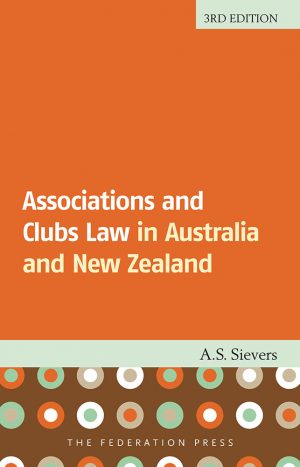Prompt payment has always been a problem in the building and construction industry. To address the problem, starting with NSW in 2000 and ending with Western Australia in 2021 every State and the ACT have enacted a Security of Payment Act. Radical legislative changes, particularly in NSW and Queensland, and recent High Court decisions have made previous texts on Security of Payment and Adjudication, including the 3rd edition of this book, outdated.
This edition shows contractors, subcontractors, suppliers and consultants step by step how to make statutory payment claims and adjudication applications. It is equally concerned to show recipients of claims how to defend claims and adjudicators how to adjudicate claims. The book includes precedents for each step of the process.
Of particular concern in NSW is that important protections given to home owners and occupiers under the Home Building Act 1989 have been abolished. Those consumers may not be aware of the urgency of taking steps to deal with payment claims that they dispute. Before entering any contract for residential building work they should read this book. Security of payment legislation overrides any inconsistent provision in a contract.
Hundreds of Supreme Court decisions on the powers of the Court to set aside adjudication determinations have been overruled by High Court decisions. This book aims to keep legal advisers and adjudicators up to date. Significant differences between the legislation in each jurisdiction are considered as are some unique aspects of the new Western Australian Act.
This book should also be compulsory reading for students of architecture, engineering, building and construction management, and accountants whose clients carry out or commission building or engineering work.
1. Introduction
2. Significant changes
3. How to make a payment claim
4. How to make a payment schedule
5. Consequences of failure to make a payment schedule
6. How to make an adjudication application
7. How to make an adjudication response
8. How to withdraw an adjudication application
9. Appointment of adjudicator
10. How to make an adjudication determination
11. After adjudication
12. How to file an adjudication certificate as a judgment
13. Queensland
14. South Australia
15. Tasmania
16. Victoria
17. Western Australia
18. ACT
19. Glossary
20. Precedents
Reviews of previous editions:
This book aims at providing a clear account of the new statutory adjudication process available to participants in the building industry… this book is recommended as a sound introduction to an important and innnovative scheme.
Law Institute Journal (Victoria), Special Issue, December 2004
The changes made by the 1999 Act affect developers, contractors, subcontractors, related professions, manufacturers and suppliers. .. This book describes how to make claims under the Act, how to defend claims and how to adjudicate disputes. The book contains precedents for notices under the Act and for adjudicators. It shows how adjudication affects litigation, arbitration and expert determination and how to challenge an adjudicator’s decision.
Building Construction Materials & Equipment, July/August 2000
The book is admirably well ordered and easy to read. … [It] is succinctly written in plain English. The author should be commended on the great amounts of helpful information he has managed to include in 165 pages. … It is wholeheartedly recommended to would-be adjudicators, parties to adjudications and their advisors.
Australian Construction Law Bulletin, Vol 12 No 1
An essential reference in the case of a looming building payment dispute and also makes important reading for anyone associated with the NSW building industry.
House and Home, September 2000
Guidance is provided for everyone in the construction chain from the developer to the owner of the local hardware store. It is also intended to assist all those who advise them, including architects, accountants and lawyers.
The Earthmover and Civil Contractor, May 2000








